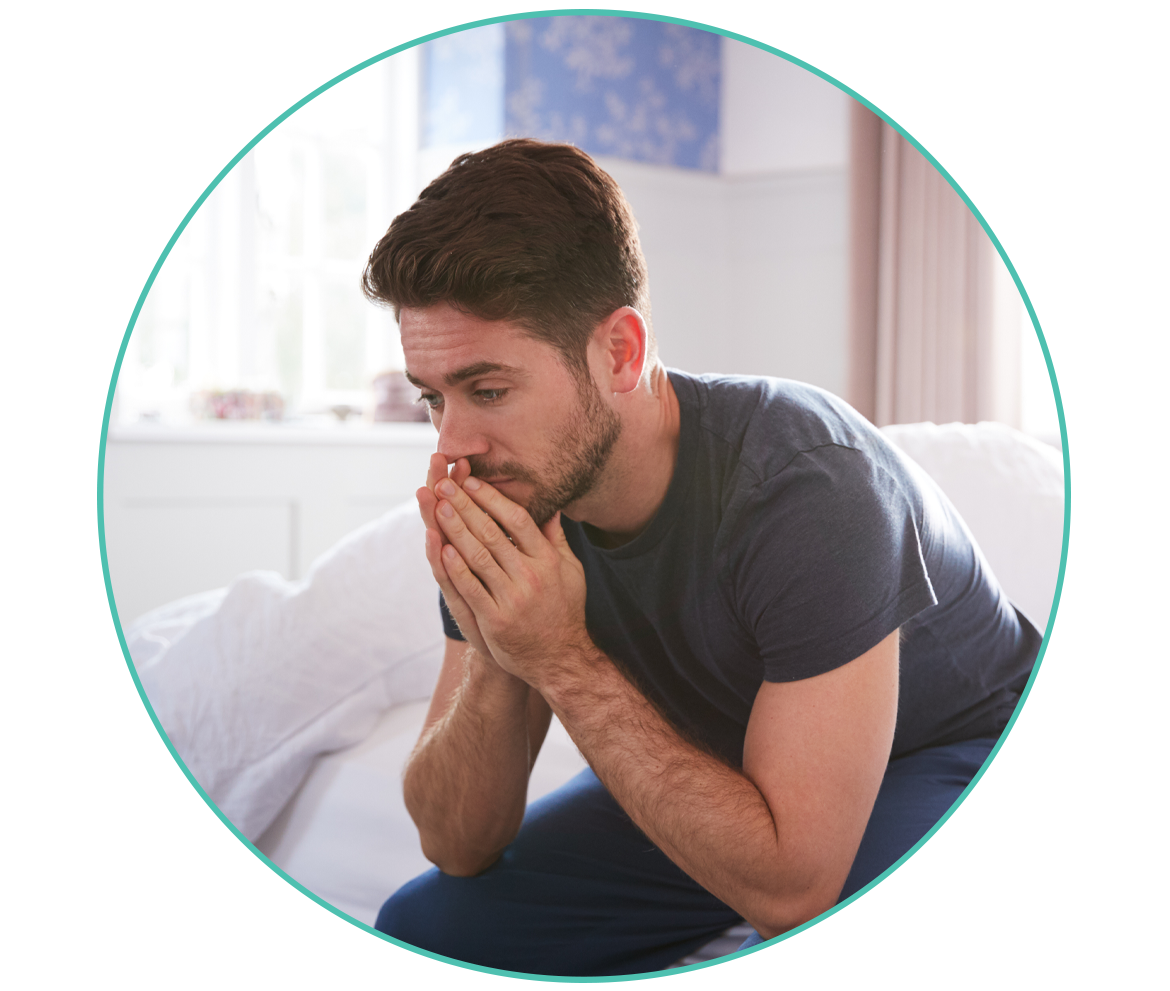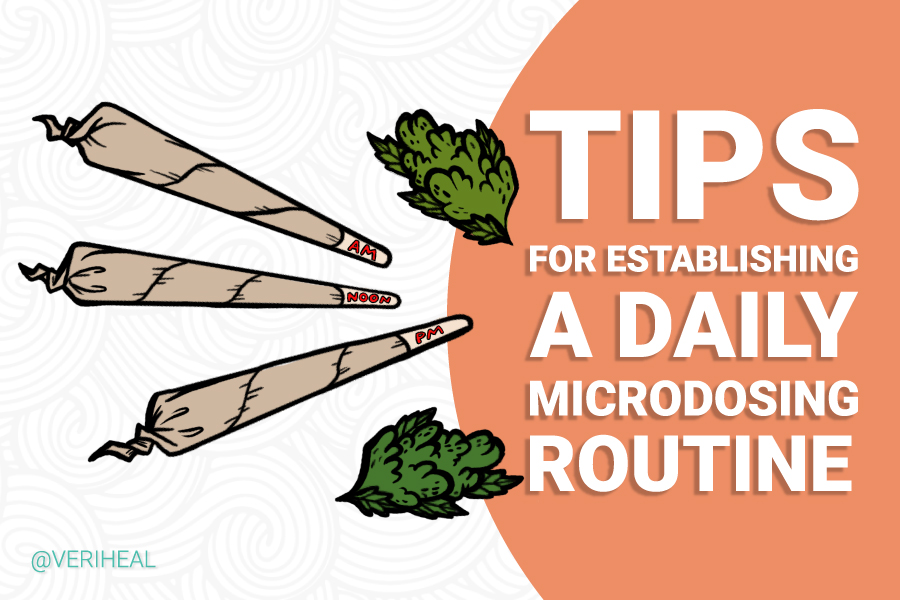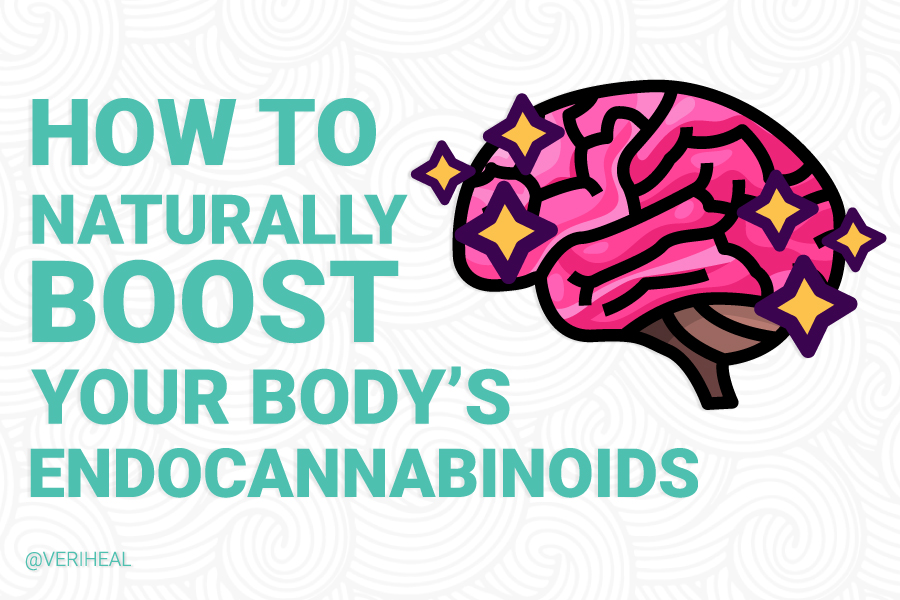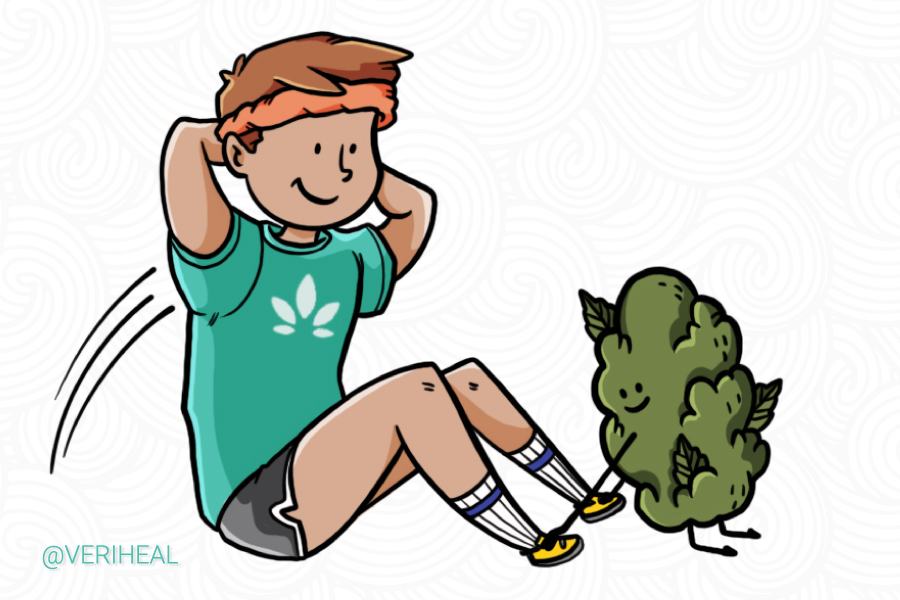Can Medical Marijuana be Effective for Anxiety Symptoms?

What You Need to Know: Medical Cannabis for Anxiety
The Science Behind Medical Cannabis for Anxiety
- Cannabinoids and Anxiety Disorders
- Considerations to Keep in Mind
- Understanding the Different Types of Anxiety Orders
- Scientific Research on Anxiety and Medical Cannabis
- A Cannabis Professional’s Analysis
Through on-going research about the endocannabinoid system, researchers have identified some of the mechanisms of how cannabis works in order to help relieve feelings of anxiety in patients. The endocannabinoid system is complex and researchers are still uncovering more about it. Cannabis is primarily known to affect the body through the CB1 and CB2 receptors of the endocannabinoid system, but we are now learning it also has other downstream effects through other receptors (2).
When it comes to anxiety specifically, CB1 receptors that are typically located in the brain and central nervous system are activated by cannabinoids found in cannabis and can influence neurotransmitters in the body, creating a calming or anxiolytic effect. Cannabidiol (CBD) is shown to activate the CB1 receptors as well as directly influence the serotonin 5-HT1A receptor and the transient receptor potential vanilloid type 1 (TRPV1). These are just a few of the receptors that are activated by cannabis, but they play a role in regulating fear and anxiety-related behaviors (2). Preclinical studies have shown how medical marijuana may be of therapeutic use; however, there is a need for well-controlled, long-term studies to determine potential benefits, dosing, uses, and hazards.
Cannabinoids and Anxiety Disorders
Δ9- tetrahydrocannabinol (THC), the component in cannabis that is responsible for the “high” effect, binds stronger to the CB1 receptor compared to cannabidiol; however, it can cause anxiety to increase, especially in people who are new to cannabis. In general, when the CB1 receptor is activated, anxiety and fear decrease, but it may also increase in doses that are too large for a particular individual as seen in both animal and human studies (2). Novice medical marijuana consumers seeking symptomatic relief should pick high CBD to low THC ratios, or even possibly avoid THC altogether, to lessen the probability of THC-induced anxiety. CBD has been shown to partially reduce the temporary anxiety caused by THC, but not necessarily in the long term (9).
Treating anxiety with medical marijuana is tricky because there hasn’t been clear research on the dosages, potential benefits, or long-term effects on specific anxiety conditions that are the most helpful, but research and user experience suggests that low doses are the way to go because high doses result in a heightened anxiety effect (4). Consuming high THC products can also lead to heightened anxiety. There aren’t yet any well-controlled studies done on how cannabis may be therapeutic for anxiety conditions or long-term health outcomes.
Researchers believe that CBD use increases anandamide, which directly enhances serotonin activity and helps ease fear and stress (4). Because THC affects the CB1 receptors and it stimulates the release of norepinephrine, when it is paired with CBD, it works similarly to prescription serotonin and norepinephrine reuptake inhibitors (SNRIs) by easing depression and anxiety.
Considerations to Keep in Mind
More research is needed to establish concrete medical recommendations for what ratio of CBD to THC is optimal, as well as doses and the timing of when the cannabis is taken. Typically, it is recommended that patients choose from products that contain high CBD, 1:1 CBD to THC ratio, and CBD-only products. A general rule of thumb is to start treatment of anxiety with low doses ranging from 2-20 mg of cannabinoids before bedtime and increasing from there. After a helpful dose has been determined, it can be used during the day to treat episodic symptoms of anxiety once you know how it affects you (4). If you are worried about getting intoxicated, it is appropriate to start with CBD-only products like CBD oil.
However, it is important that you talk to your healthcare provider first before taking cannabis or CBD for any reason – especially mental health concerns – and report any symptomatic worsening to them right away. Medical cannabis cannot replace personalized medical care or therapy for psychological conditions, which may worsen while taking cannabinoids and become serious medical emergencies. Always seek medical care for any physical or mental health concerns for proper diagnosing and care, and never self-treat.
Edibles can be tricky because everyone’s liver metabolizes differently and titration of doses is difficult (4). However, starting low and slow is a good way to find a proper dose for yourself in conjunction with your healthcare provider’s recommendation. Concentrates such as wax, dabs, and shatter are also difficult to dose and deliver too much THC to treat anxiety.
Microdosing, or taking small doses throughout the day, is also a good option for treating anxiety because of its limiting intoxicating effects and the ability to treat the anxiety throughout the day. Sublingual, or under the tongue, tincture doses can be started with a 2-2.5 mg of 1:1 CBD to THC ratio (4). Please see our article on microdosing cannabis for more information.
It is recommended to use low, measurable doses of medical marijuana when using it for anxiety. According to the University of Washington, THC decreases anxiety at lower doses. Alternatively, it can increase anxiety when taken at higher doses, which may make anxiety worse for some cannabis users (6).
In addition to taking lower doses to help anxiety, research also suggests that patients who experience psychotic disorders with symptoms such as delusion and hallucinations may have problems using medical marijuana for treatment (7). Persons with psychotic or bipolar disorders should avoid cannabinoids as evidence shows it may worsen these conditions, and potentially cause harm. Individuals with such conditions need careful follow-up with a qualified health professional, and always seek care in an emergency (8).
Understanding the Different Types of Anxiety Disorders
There are five main categories of anxiety that include (3):
- Generalized Anxiety Disorder (GAD) is characterized by chronic anxiety, tension, and worry when there is little or nothing to provoke it.
- Obsessive-Compulsive Disorder (OCD) is characterized by recurrent and unwanted thoughts or obsessions and/or repetitive behaviors or compulsions.
- Panic Disorder is caused by unexpected or repeated episodes of intense fear (known as panic attacks) and other physical symptoms, such as chest tightness, racing heart rate, or abdominal distress.
- Post-Traumatic Stress Disorder (PTSD) occurs after a person was exposed to a traumatic event in which physical harm occurred or was threatened. This includes sexual assaults, military combat, accidents, etc.
- Social Anxiety Disorder, also known as social phobia, is characterized as overwhelming anxiety and excessive self-consciousness in everyday social situations such as fear of public speaking, eating or drinking in front of others, or agoraphobia.
Scientific Research on Anxiety and Medical Cannabis
A study published in the May 2011 issue of Neuropsychopharmacology tested the effects of orally ingesting CBD capsules before presenting study participants with a public speaking stress test (1). Participants either received a dose of CBD or placebo before participating in the test. They participated in a survey analyzing their stress levels and were monitored for changes in blood pressure, heart rate, and skin conductance. This study used participants who experienced generalized social anxiety disorders as well as a control group of participants who do not have an anxiety disorder.
The results are promising because the patients who were treated with CBD had significantly reduced anxiety and cognitive impairment compared to those who received the placebo. This group had similar results to the control group who did not experience any anxiety disorders (1). This study is important because it provides support that CBD does have anxiolytic, or anxiety-reducing, effects in those who experience social anxiety.
A 2019 systematic review of studies found on Pubmed has shown that cannabis use is linked to poorer outcomes in patients who are bipolar or suffering from PTSD (8). However, due to a need for more clinical studies, this has not been determined to be the same for patients with depression or anxiety so far. There is a clear need for further research to clarify what exact benefits, dosing, and hazards there may be in using cannabis for anxiety or other psychological conditions as there have not been many qualitative and longitudinal studies done focusing on the use of cannabis for psychiatric purposes (9).
A Cannabis Professional’s Analysis
Veriheal interviewed Dr. Debra Kimless MD, the Chief Medical Officer of Pure Green, who conducts clinical trials with cannabis products. She had the following to say about the implications of cannabinoids on conditions relative to anxiety:
“Because we are Americans, bigger and better does not always go along with this (cannabis use). In fact the endocannabinoid system is a delicate balance. While a little bit can reduce your anxiety, a lot of it could make you paranoid. A little bit can calm you and allow you to sleep, a lot of it can exacerbate PTSD. Lots of information is being looked at and researched about the cannabinoids themselves. Some are lower in THC. I am not vilifying high potency THC, some people require it, but not everybody. Some people with certain constellations of illnesses like anxiety or PTSD do not always do well with high dose THC,” said Dr. Kimless.
Depending on the state in which you live, anxiety may be one of the qualifying conditions for a medical marijuana card. If you are interested in learning more, meet with a medical marijuana doctor. Veriheal’s network makes it easy to make an appointment.
Note: Veriheal does not intend to give this as professional medical advice. Do not attempt to self-diagnose, or prescribe treatment based on the information provided on this page. Always consult a physician before making any decision on the treatment of a medical condition.
1. Bergamaschi, M. M., Queiroz, R. H., Chagas, M. H., de Oliveira, D. C., De Martinis, B. S., Kapczinski, F., Quevedo, J., Roesler, R., Schröder, N., Nardi, A. E., Martín-Santos, R., Hallak, J. E., Zuardi, A. W., & Crippa, J. A. (2011). Cannabidiol reduces the anxiety induced by simulated public speaking in treatment-naïve social phobia patients. Neuropsychopharmacology : official publication of the American College of Neuropsychopharmacology, 36(6), 1219–1226. https://www.nature.com/articles/npp20116
2. Blessing, E. M., Steenkamp, M. M., Manzanares, J., & Marmar, C. R. (2015). Cannabidiol as a Potential Treatment for Anxiety Disorders. Neurotherapeutics : the journal of the American Society for Experimental NeuroTherapeutics, 12(4), 825–836. https://link.springer.com/article/10.1007/s13311-015-0387-1
3. (DCD), D. (2015, August 21). What are the five major types of anxiety disorders? Retrieved January 15, 2021, from https://www.hhs.gov/answers/mental-health-and-substance-abuse/what-are-the-five-major-types-of-anxiety-disorders/index.html
4. Johnson, B., MS,RDN. (2020, Spring). Calming Anxiety with Cannabis. CRx Magazine. Retrieved December 29, 20, from https://www.crxmag.com/issues/2020/spring/calming-anxiety-with-cannabis.shtml#
5. Kedzior, K.K., Laeber, L.T. A positive association between anxiety disorders and cannabis use or cannabis use disorders in the general population- a meta-analysis of 31 studies. BMC Psychiatry 14, 136 (2014). https://bmcpsychiatry.biomedcentral.com/articles/10.1186/1471-244X-14-136
6. Stoner SA. Effects of Marijuana on Mental Health: Anxiety Disorders. Alcohol & Drug Abuse Institute, University of Washington, June 2017. URL: http://adai.uw.edu/pubs/pdf/2017mjanxiety.pdf
7. Walsh, Z., Gonzalez, R., Crosby, K., S Thiessen, M., Carroll, C., & Bonn-Miller, M. O. (2017). Medical cannabis and mental health: A guided systematic review. Clinical psychology review, 51, 15–29. https://www.sciencedirect.com/science/article/abs/pii/S0272735816300939?via%3Dihub
8. Botsford, S. L., Yang, S., & George, T. P. (2020). Cannabis and Cannabinoids in Mood and Anxiety Disorders: Impact on Illness Onset and Course, and Assessment of Therapeutic Potential. The American journal on addictions, 29(1), 9–26. https://www.ncbi.nlm.nih.gov/pmc/articles/PMC6925309/
9. Sarris, J., Sinclair, J., Karamacoska, D., Davidson, M., & Firth, J. (2020). Medicinal cannabis for psychiatric disorders: a clinically-focused systematic review. BMC psychiatry, 20(1), 24. https://www.ncbi.nlm.nih.gov/pmc/articles/PMC6966847/








